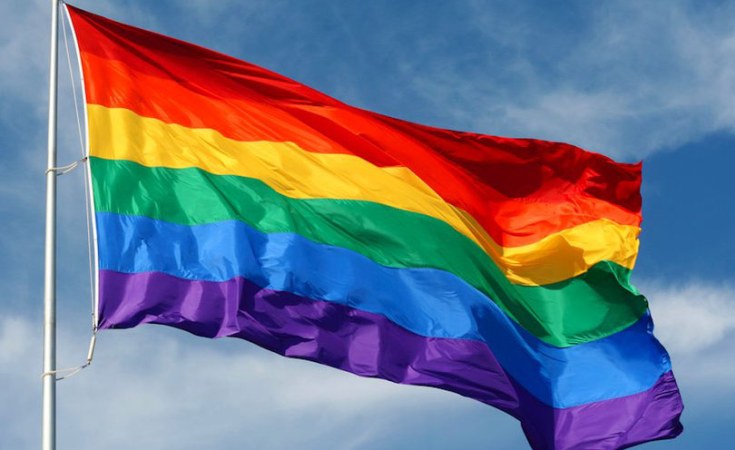Events in recent months have raised fear among Ghana’s human rights activists, lesbian, gay, bisexual, and transgender (LGBT) people, and allies.
In October, police stopped a 30-year-old who was carrying sex toys at a checkpoint, detained and threatened them with jailtime. The police demanded a bribe of 500 cedis (40 USD) for the person to be released, an unlawful and cruel expense, particularly in a context of severe economic hardship.
In September, school authorities dismissed a 17-year-old student over allegations that he was gay from a boys’ boarding school in Accra, activists told Human Rights Watch. According to one activist, their investigations revealed other forms of homophobic acts against the child, including a death threat, because he appeared effeminate. A petition organized by local activists was sent to the district and regional education offices, and the student was allowed to return to register for the senior school certificate examination.
A bill before parliament proposes heavier criminal penalties for same sex activities, increasing the maximum penalty from three years in prison to five and expanding criminalization for anyone who identifies as LGBT, or as queer, as pansexual, an ally, or any other non-conventional gender identity. It would also punish anyone providing support or funding or publicly advocating for sexual and gender minorities rights.
Parliament should withdraw the bill and uphold Ubuntu principles
In my former capacity as a lecturer in political science, I used to cite Ghana as a stable country in West Africa where the rule of law prevailed. However, challenges such as the current discrimination against LGBT people, alongside other obstacles including the underrepresentation of women in politics and the shrinking of civic space, are compromising Ghana’s success story. Today, there is a deepened trepidation among human rights defenders and civil society organizations working on social justice and sexual and gender diversity.
Actually, LGBT people in Ghana have historically faced serious human rights abuses , including physical and psychological violence, extortion, and discrimination in their daily life. Many live in constant fear of being attacked just for who they are. Yet, since 2021, debate around The Promotion of Proper Human Sexual Rights and Ghanaian Family Values Bill 2021 has heightened attacks against LGBT people.
In February 2021, police raided and closed down an LGBT resource center which, among other things, provided community-based interventions services and information about HIV/AIDS. It has since been increasingly difficult to provide health services to marginalized groups disproportionately affected by HIV and related infections. As Nasser, a community leader, told Human Rights Watch, “Even spaces that were opened before are now closing doors for us because of what is happening. It is extremely difficult to operate properly.”
Since the bill was presented in June 2021, Rightify Ghana, an organization that advocates for sexual ad gender minorities in Ghana has documented multiple accounts of people who have been arbitrarily evicted from their homes. According to activists, landlords say that they are protecting themselves and their families or use the bill as a pretext to unfairly raise LGBT people’s rent.
Some parliament members have been actively provoking anti-LGBT sentiment and practices. Sam George, who presents himself as a “charismatic Christian,” and eight other Members of Parliament from the National Democratic Congress party and the New Patriotic Party are pushing to get the anti-LGBT bill passed before the year’s end. Statements, by George and allies, claiming that sexual and gender equality are incompatible with African culture attract the support of religious and traditional leaders, and many Ghanaians.
But they conveniently ignore Ghana’s secular status and African principles such as ubuntu , dignity, equality, non-discrimination, empathy, protection from violence and care for each other. These African principles have shaped Ghana’s independence struggles and continue to contribute to the consolidation of a democratic state.
These same principles have led other African countries like Mozambique (2015), Botswana (2019), Angola (2021), Gabon and Mauritius (2022) to overturn colonial-era laws criminalizing same-sex relations. Some countries go further to imbed human rights standards and not only adopt anti-discrimination laws, but recognize same sex marriage, like South Africa in 2006.
Ghana’s parliament should consider the disastrous social, political, and economic consequences that the anti-LGBT bill will have on journalists, human rights defenders, women, families, and on other minorities in the country. If passed into law, the bill will not only imperil fundamental human rights enshrined in Ghana’s 1992 Constitution, but also violate regional and international human rights obligations, such as the principles of nondiscrimination and equality enshrined in the African Charter of Human and People’s Rights.
There are also serious economic risks. If the bill is passed, it could represent a risk to Ghana’s negotiating power in debt restructuring negotiations for example, lending ability from international investment institutions like the World Bank or IMF, and trade and circulation, a not insignificant concern given the country’s economic challenges .
Parliament should immediately withdraw the bill. Not only is it inconsistent with the Ghana’s human rights obligations, including in the constitution, and incites fear, hatred, and violence against fellow Ghanaian citizens, but its passage would be an anti-democratic and authoritarian turn for Ghana.
Larissa Kojoué is a researcher at Human Rights Watch.


